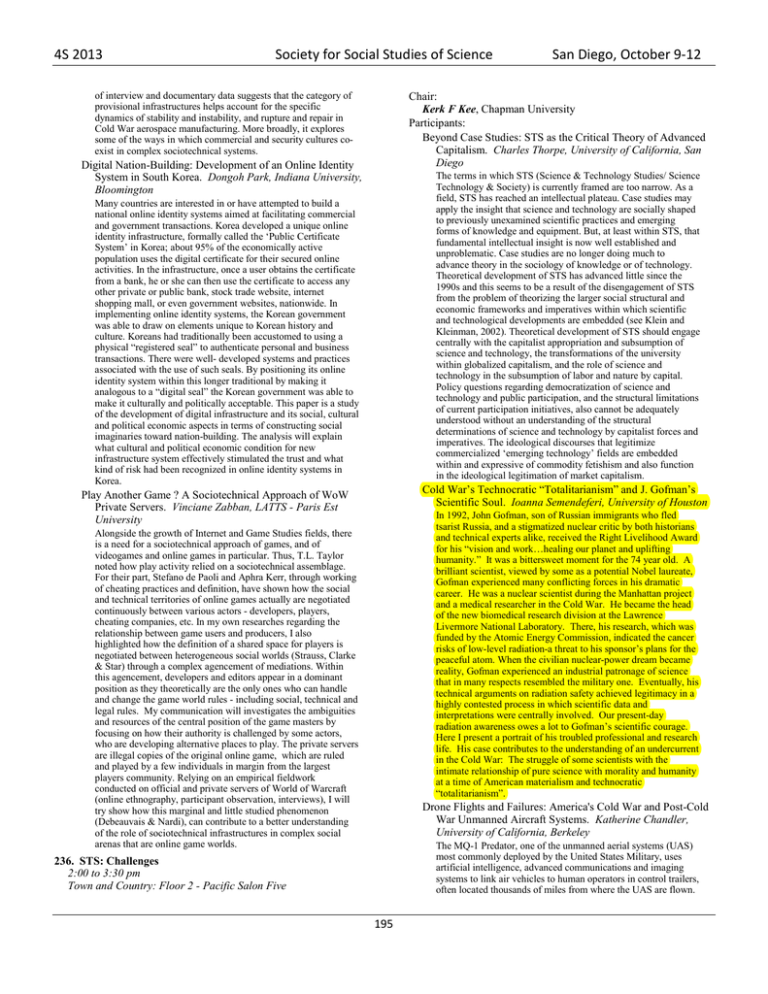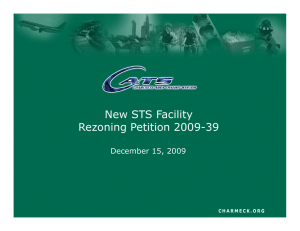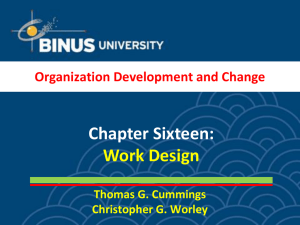4S 2013 Society for Social Studies of Science San Diego, October 9-12
advertisement

4S 2013 Society for Social Studies of Science of interview and documentary data suggests that the category of provisional infrastructures helps account for the specific dynamics of stability and instability, and rupture and repair in Cold War aerospace manufacturing. More broadly, it explores some of the ways in which commercial and security cultures coexist in complex sociotechnical systems. San Diego, October 9-12 Chair: Kerk F Kee, Chapman University Participants: Beyond Case Studies: STS as the Critical Theory of Advanced Capitalism. Charles Thorpe, University of California, San Diego Digital Nation-Building: Development of an Online Identity System in South Korea. Dongoh Park, Indiana University, Bloomington The terms in which STS (Science & Technology Studies/ Science Technology & Society) is currently framed are too narrow. As a field, STS has reached an intellectual plateau. Case studies may apply the insight that science and technology are socially shaped to previously unexamined scientific practices and emerging forms of knowledge and equipment. But, at least within STS, that fundamental intellectual insight is now well established and unproblematic. Case studies are no longer doing much to advance theory in the sociology of knowledge or of technology. Theoretical development of STS has advanced little since the 1990s and this seems to be a result of the disengagement of STS from the problem of theorizing the larger social structural and economic frameworks and imperatives within which scientific and technological developments are embedded (see Klein and Kleinman, 2002). Theoretical development of STS should engage centrally with the capitalist appropriation and subsumption of science and technology, the transformations of the university within globalized capitalism, and the role of science and technology in the subsumption of labor and nature by capital. Policy questions regarding democratization of science and technology and public participation, and the structural limitations of current participation initiatives, also cannot be adequately understood without an understanding of the structural determinations of science and technology by capitalist forces and imperatives. The ideological discourses that legitimize commercialized ‘emerging technology’ fields are embedded within and expressive of commodity fetishism and also function in the ideological legitimation of market capitalism. Many countries are interested in or have attempted to build a national online identity systems aimed at facilitating commercial and government transactions. Korea developed a unique online identity infrastructure, formally called the ‘Public Certificate System’ in Korea; about 95% of the economically active population uses the digital certificate for their secured online activities. In the infrastructure, once a user obtains the certificate from a bank, he or she can then use the certificate to access any other private or public bank, stock trade website, internet shopping mall, or even government websites, nationwide. In implementing online identity systems, the Korean government was able to draw on elements unique to Korean history and culture. Koreans had traditionally been accustomed to using a physical “registered seal” to authenticate personal and business transactions. There were well- developed systems and practices associated with the use of such seals. By positioning its online identity system within this longer traditional by making it analogous to a “digital seal” the Korean government was able to make it culturally and politically acceptable. This paper is a study of the development of digital infrastructure and its social, cultural and political economic aspects in terms of constructing social imaginaries toward nation-building. The analysis will explain what cultural and political economic condition for new infrastructure system effectively stimulated the trust and what kind of risk had been recognized in online identity systems in Korea. Cold War’s Technocratic “Totalitarianism” and J. Gofman’s Scientific Soul. Ioanna Semendeferi, University of Houston Play Another Game ? A Sociotechnical Approach of WoW Private Servers. Vinciane Zabban, LATTS - Paris Est University In 1992, John Gofman, son of Russian immigrants who fled tsarist Russia, and a stigmatized nuclear critic by both historians and technical experts alike, received the Right Livelihood Award for his “vision and work…healing our planet and uplifting humanity.” It was a bittersweet moment for the 74 year old. A brilliant scientist, viewed by some as a potential Nobel laureate, Gofman experienced many conflicting forces in his dramatic career. He was a nuclear scientist during the Manhattan project and a medical researcher in the Cold War. He became the head of the new biomedical research division at the Lawrence Livermore National Laboratory. There, his research, which was funded by the Atomic Energy Commission, indicated the cancer risks of low-level radiation-a threat to his sponsor’s plans for the peaceful atom. When the civilian nuclear-power dream became reality, Gofman experienced an industrial patronage of science that in many respects resembled the military one. Eventually, his technical arguments on radiation safety achieved legitimacy in a highly contested process in which scientific data and interpretations were centrally involved. Our present-day radiation awareness owes a lot to Gofman’s scientific courage. Here I present a portrait of his troubled professional and research life. His case contributes to the understanding of an undercurrent in the Cold War: The struggle of some scientists with the intimate relationship of pure science with morality and humanity at a time of American materialism and technocratic “totalitarianism”. Alongside the growth of Internet and Game Studies fields, there is a need for a sociotechnical approach of games, and of videogames and online games in particular. Thus, T.L. Taylor noted how play activity relied on a sociotechnical assemblage. For their part, Stefano de Paoli and Aphra Kerr, through working of cheating practices and definition, have shown how the social and technical territories of online games actually are negotiated continuously between various actors - developers, players, cheating companies, etc. In my own researches regarding the relationship between game users and producers, I also highlighted how the definition of a shared space for players is negotiated between heterogeneous social worlds (Strauss, Clarke & Star) through a complex agencement of mediations. Within this agencement, developers and editors appear in a dominant position as they theoretically are the only ones who can handle and change the game world rules - including social, technical and legal rules. My communication will investigates the ambiguities and resources of the central position of the game masters by focusing on how their authority is challenged by some actors, who are developing alternative places to play. The private servers are illegal copies of the original online game, which are ruled and played by a few individuals in margin from the largest players community. Relying on an empirical fieldwork conducted on official and private servers of World of Warcraft (online ethnography, participant observation, interviews), I will try show how this marginal and little studied phenomenon (Debeauvais & Nardi), can contribute to a better understanding of the role of sociotechnical infrastructures in complex social arenas that are online game worlds. Drone Flights and Failures: America's Cold War and Post-Cold War Unmanned Aircraft Systems. Katherine Chandler, University of California, Berkeley The MQ-1 Predator, one of the unmanned aerial systems (UAS) most commonly deployed by the United States Military, uses artificial intelligence, advanced communications and imaging systems to link air vehicles to human operators in control trailers, often located thousands of miles from where the UAS are flown. 236. STS: Challenges 2:00 to 3:30 pm Town and Country: Floor 2 - Pacific Salon Five 195


